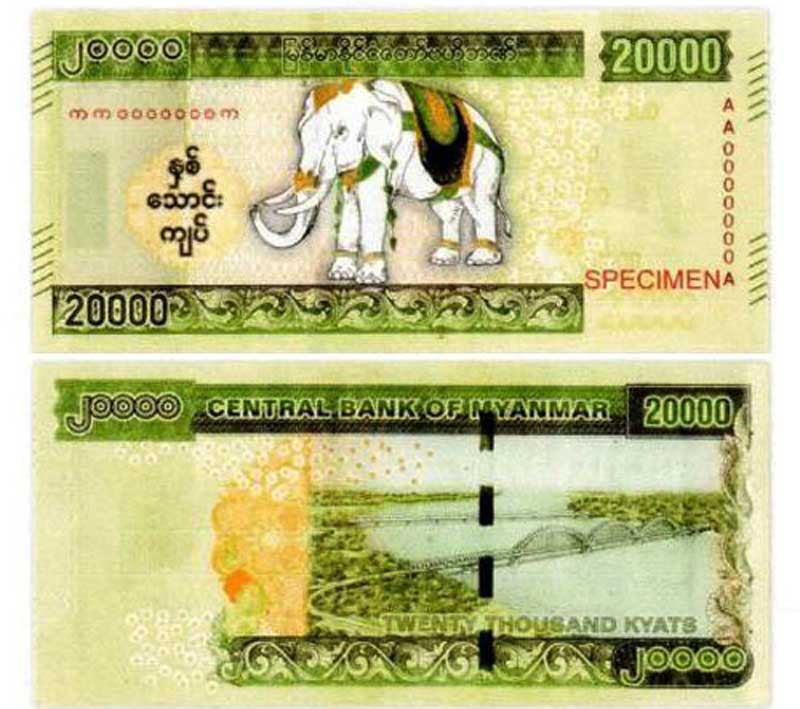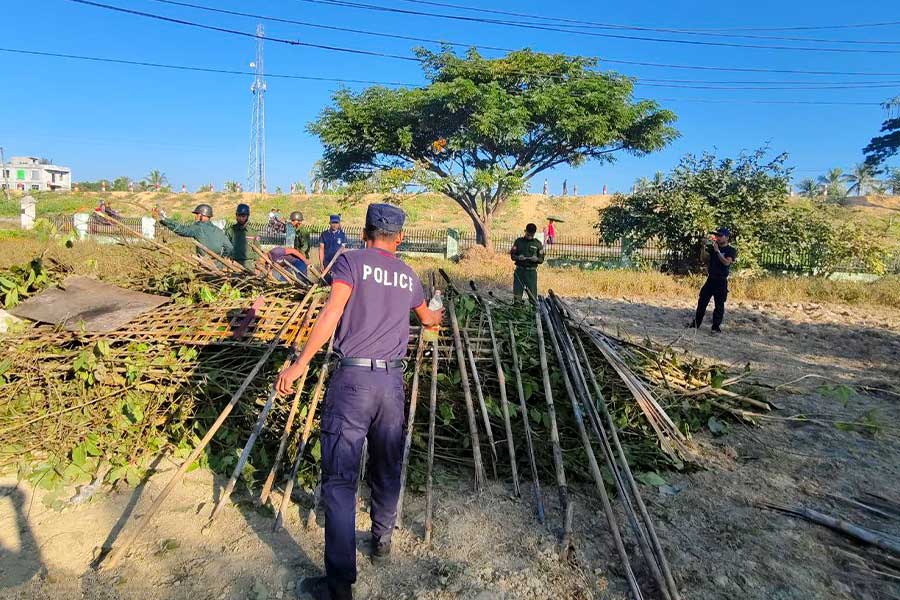- Vox Pop: The future of youth in Arakan Army controlled areas
- Arakan Army bans illegal two-digit and three-digit lottery gambling in Arakan State
- Indiscriminate plastic waste disposal poses environmental risks in Arakan State
- Mitragyna speciosa leaves fetch K200,000 per viss in Arakan State
- MDSI calls for stronger civilian protection as junta alters airstrike tactics
Junta spokesman downplays inflationary risk from new banknote issuance
Junta spokesman Major-General Zaw Min Tun has dismissed public concerns that a regime plan to issue a new, higher denomination banknote will cause inflation.
25 Jul 2023

DMG Newsroom
25 July 2023, Sittwe
Junta spokesman Major-General Zaw Min Tun has dismissed public concerns that a regime plan to issue a new, higher denomination banknote will cause inflation.
The junta-controlled Central Bank of Myanmar (CBM) announced on Sunday that it would issue a 20,000-kyat note, worth twice as much as the current highest denomination, beginning July 31.
In an interview aired on the junta-controlled state broadcaster MRTV on Monday, Maj-Gen Zaw Min Tun said the new banknotes would be available only by exchanging damaged lower denomination notes with the same value. He added that each individual can exchange a maximum of 60,000 kyats worth of currency for three 20,000-kyat banknotes.
“People will be allowed to exchange for a maximum of three [K20,000] notes per person. And they have to exchange lower denomination notes with the same value. So, it is impossible that the new notes will flood the monetary market. So, there won’t be inflation,” the junta spokesman said in response to fears that the move will further depreciate the kyat and exacerbate inflation.
The release of the new banknotes is to mark the completion of the Maravijaya Buddha Image, a giant sitting marble statue of Lord Buddha in Naypyitaw, and to mark the first birthday celebration of a white elephant that was captured in Arakan State and brought to the capital last year, the Central Bank said.
Following Sunday’s announcement of the 20,000-kyat banknotes’ rollout, money changers and gold shops temporarily closed in the commercial capital Yangon and border towns.
“We have to exercise caution because of the repercussions of the 20,000-kyat note. Suppose we sell out a product, but when we restock it, we will have to buy it at a price higher than the price we have sold. In this case, we will make a loss, so we have to exercise caution,” said a grocery owner in Ponnagyun Township.
The forthcoming 20,000-kyat note’s issuance is fueling unease over its unpredictable impacts on an economy already battered by the combined effects of the coup, Covid-19 and, in Arakan State, ongoing recovery from Cyclone Mocha.
“People fear that the kyat will further depreciate due to the introduction of 20,000-kyat notes. So, people have invested their money in gold, land and cars. Prices have also soared. As commodity prices are already up, it is unlikely that the issuing of 20,000-kyat notes will further increase prices,” said secretary U Aung Aung of the Arakan State Chamber of Commerce and Industry.
Myanmar has been in a state of political and economic chaos since the military seized power in a coup in February 2021, with the kyat depreciating from less than 1,400 kyats per dollar pre-coup to around 3,200 kyats per dollar currently.















.jpg)

